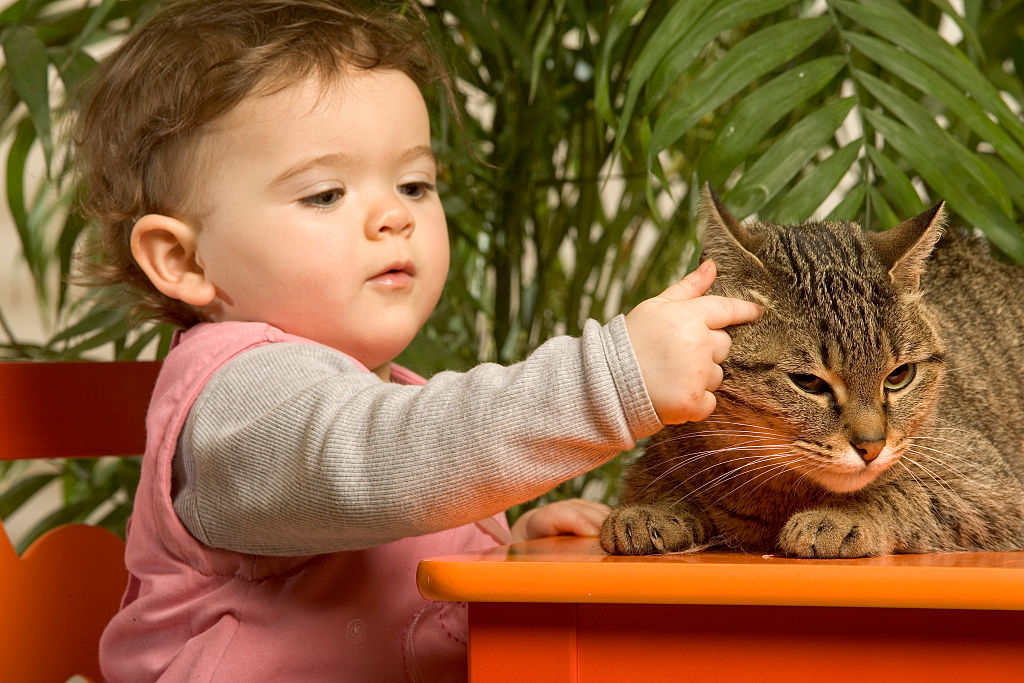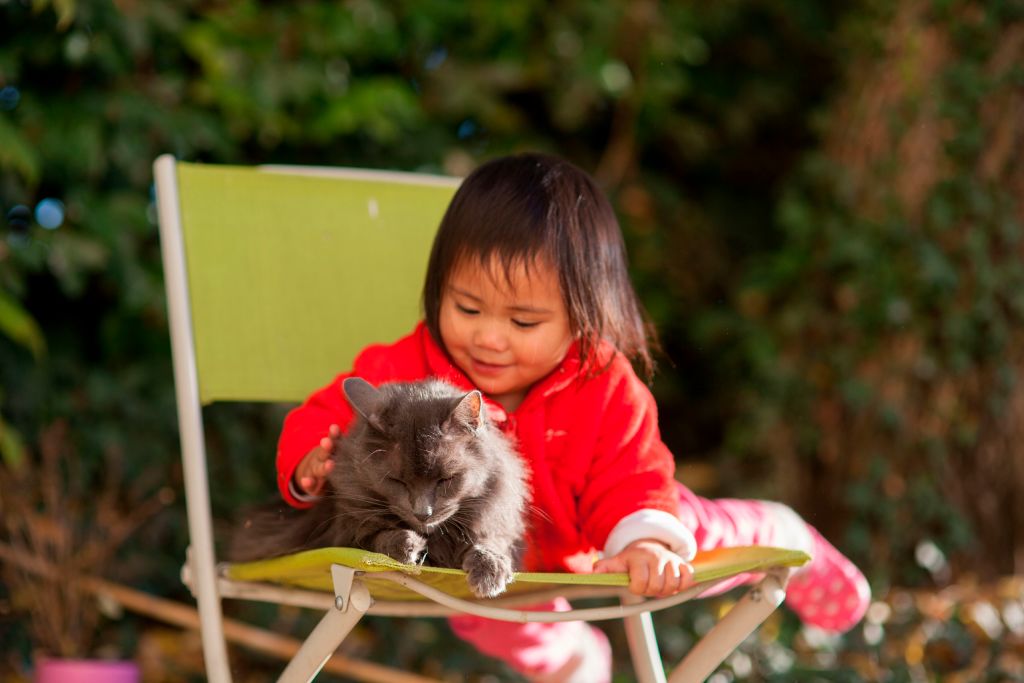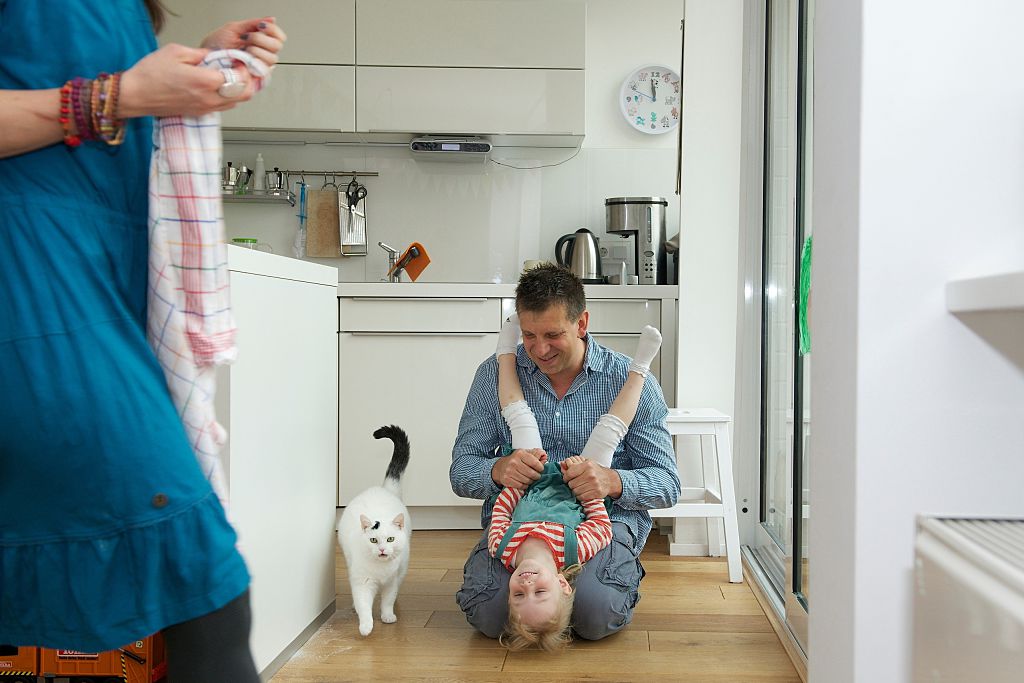Bringing home a new baby is one of the most joyful occasions in your life, but if you don’t take the time to prepare your cat for the new arrival, it could lead to potentially worrisome health and behavioral problems for your feline friend. Cats and babies can get along beautifully if you take the proper precautions. For example, your cat should never be allowed to sleep in the same bedroom with your baby or young child, as she may sleep near your baby’s face and obstruct their breathing. Here is the best way to go about introducing your cat to your baby, so you can create a welcoming environment for every member of the family.

Before the baby arrives
While cats don’t understand human pregnancy, your fur baby can smell the hormonal changes, and as your baby grows, she may even be able to detect their heartbeat. One thing your cat is sure to notice is the change in your routine. Here are a few tips to help her adjust.
Setting up the nursery
As you prepare the nursery for your baby, make sure to give your cat time to adjust to these changes, especially if your cat is used to spending time in the soon-to-be nursery. Allow your cat to investigate new household items such as cribs, changing tables, and baby toys. However, don’t let your cat get comfortable sleeping on those surfaces. Try coating them with double-sided sticky tape to prevent your fur baby from turning your human baby’s crib into her new favorite place to sleep.
Take proper health precautions
If your cat is an indoor-outdoor cat, now is the perfect opportunity to transition her to being indoors full time. Outdoor cats are more likely to contract a parasitic infection called toxoplasmosis. Pregnant women who become infected may suffer a miscarriage, birth defects, or stillbirth. For this reason, you should also wear a mask and gloves when changing the litter box, and you should always wash your hands thoroughly after petting your cat while pregnant.

Introduce baby items
Have a lotion you intend to use on your baby? Start wearing it a few months before the baby’s arrival to help your cat adjust to the new scent. We also recommend playing audio of a baby crying. That way, the sound of your baby’s cry won’t be completely foreign to your cat, so she’ll be less stressed out when she hears wailing in the home. Let the baby swing run for a few minutes every day to give your cat time to adapt to the noise and movement. (This will also give you time to train her not to swat at your baby’s items, so it’s less likely she’ll scratch your baby.) If you already have an outfit or a receiving blanket you intend to bring Baby home in, let your cat sniff the fabric. This introduces your cat’s scent to the item, which means your baby will come home already smelling familiar to your feline child.
After baby comes home from the hospital
You’ll probably be excited to introduce your furry child to your newborn child when you arrive home, but don’t rush into things. Make sure your cat receives a few minutes of your undivided attention before allowing a spouse or partner, friends, relatives, and your baby into the space. Allow your cat to sniff the baby, taking care to pet your cat, and praise her for being a good kitty. If your cat runs and hides, let her have some time to herself instead of chasing her. However, if your cat hisses, firmly tell her “no” and remove her from the space. Hissing, flattening her ears, or growling doesn’t mean your cat hates your baby. She’s most likely frightened, and she’ll need some time to adjust. Don’t hesitate to reach out to your veterinarian if your cat begins urinating outside her box, hissing, or hiding. Even if everything goes perfectly from the first meeting, you’ll want to take certain precautions. Never leave your cat alone with your baby, keep her out of your baby’s nursery, and don’t be afraid to seek professional help if you need support during the adjustment period.

Contrary to popular belief, having a new baby doesn’t mean you have to rehome your family cat. With patience and persistence — and by following the proper precautions — you can help your cat and baby learn to coexist peacefully. After your cat has had time to adjust to the newest member of the household, they may even become the best of friends.



